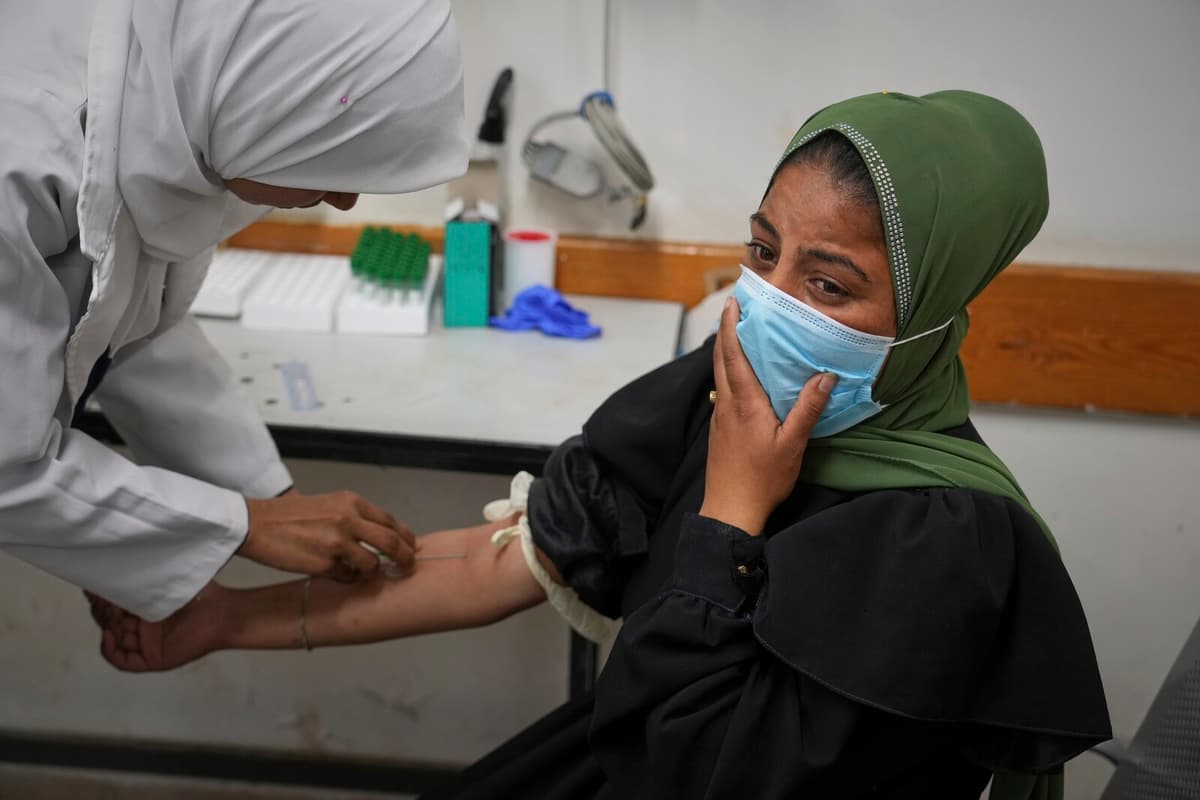Yasmine Siam, 24, is one of many Palestinians who move around between different refugee camps. Her pregnancy has been marked by fear of air strikes and shelling. But also by a lack of food and clean water.
I just wish a doctor could say: your weight is good. I am always undernourished, she said earlier.
But despite constant stress and anxiety in the war, it also meant a rare source of happiness in the uncertain existence of the refugee camp.
In Gaza, an estimated 55,000 women are pregnant. One-fifth of these are undernourished and more than half are at risk of a complicated delivery, according to the UN Population Fund. In February and March, at least 20 percent of babies suffered from complications and malnutrition.
"Where can I get food?"
One night a few weeks ago, Yasmine Siam was hit by severe pain and worried that the delivery had started. Local medical staff urged her to go to Nasser Hospital in Khan Yunis.
An ultrasound showed that the baby was doing well. Yasmine Siam herself was found to be severely undernourished and was advised, as so many times before, to eat better.
Where can I get food? I'm not worried about myself, I'm worried about my son, she said then.
The situation has deteriorated since Israel began blocking aid in early March. According to Palestinian health authorities in the Hamas-controlled area, more than half of the medicines for infant and maternal care are out of stock.
More miscarriages
Records from Nasser Hospital show that miscarriages have so far this year doubled compared to the same period in 2023. Recently, the number of miscarriages has been around 40 per week. Five women a month die in connection with childbirth, according to Doctors Without Borders' Yasmine Shnina, who is responsible for the hospital's midwives.
We don't need to wait for future effects. The risks are here and now, she says.
Doctor Ahmad al-Farra has seen the situation at the hospital go from bad to worse. He explains that there are not enough for the newborn babies. The lack of cleaning and hygiene products also means that women and children risk getting infections, which can lead to life-threatening complications.
The night after Yasmine Siam's hospital visit to Nasser, the pain increased and she went to a field hospital near the camp. The doctors said there was nothing else to do but wait.
Eight hours later, the delivery began, but her son was stillborn.






